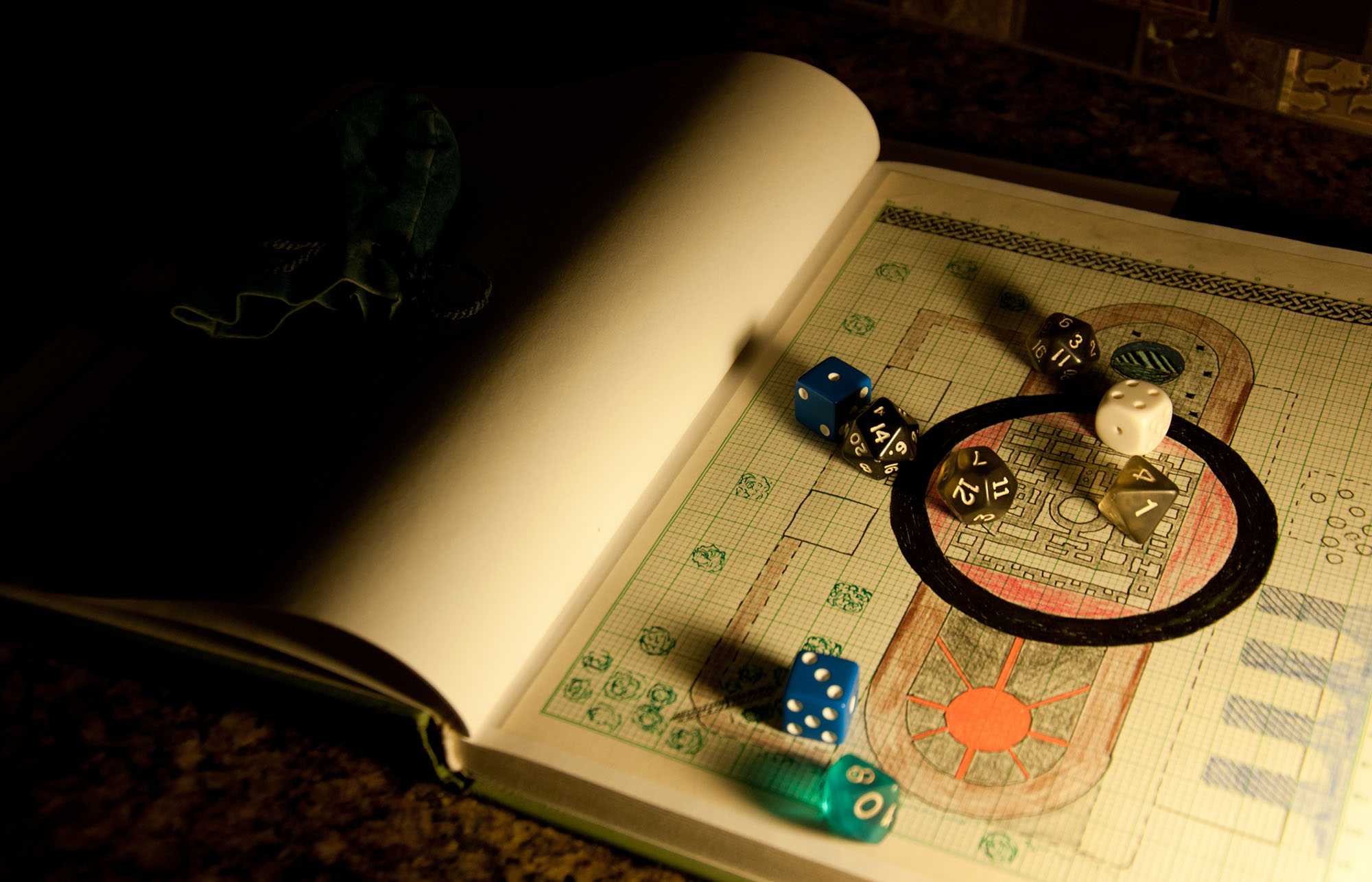
Techniques like the Three Clue Rule and node-based scenario design can make mystery and conspiracy scenarios a joy to run and play with confidence. These structures are designed to make sure that the players get the information they need to understand complicated enigmatic situations, while also being empowered to make meaningful choices about what they want to do.
But what happens if they forget they have the information?
This generally isn’t a problem in a short scenario or one-shot, but it can be easy to lose track of stuff between sessions. And if a campaign is focused on unraveling a massive conspiracy, the investigation might span months or even years of time in the real world.
Now the Grade-A solution for this is to have at least one player in your group who is engaged, enthused, and rigorously keeps detailed notes. They’ll backstop the rest of the group and make sure fine details don’t get missed.
But while there are things you can do to encourage or even create players like that, not all of us will be so blessed. And there are also a lot of reasons why it’s good to get as much of the group up to speed as possible.
I’ve previously talked about how one of the most potent tools in a GM’s arsenal is a simple question:
What are you planning to do next session?
Because it allows you to focus and target your prep with confidence.
But before asking that question at the end of a session, first ask the players to briefly summarize what they feel their current options are: What do they know? Where do they think they could take the investigation next?
THEN ask them what they want to do next time.
This is the best time to do this, obviously, because the game is still fresh in their minds and they’re engaged in the moment. Take notes on what they say. At the beginning of the next session, ask them to recap the previous session and use the notes of what they said to fill in the gaps.
The best way to do this is as a discussion: Prompt them to provide what they recall, then fill in the gaps as they come up with what their former selves said but they’ve forgotten.
There are a couple reasons for doing this. First, the act of summarizing what they know and what they plan to do at the end of the previous session will, all by itself, improve their recall in the next session. Second, it makes it less likely that you — biased by your own knowledge of what’s important and what the correct conclusions are — will unconsciously put your thumb on the scale when summarizing things for them.
If you make this procedure habitual, it also becomes increasingly likely that the players will start jotting down these notes themselves and possibly even reviewing them between sessions.
(You can prompt this a bit by initiating an e-mail discussion on this stuff a few days before the next session, although this does carry the risk that the players will change their minds about what they want to do next, possibly misfooting your prep.)
TAKING NOTES
Here’s something else to note. Take a look around the table: The players have pencils. They have characters sheets. You may be surprised by how often they don’t actually have any spare paper to actually take notes with!
Provide them with that material. Something I like to do is to buy the players some cheap (but ideally flavorful) pocket notebooks and hand them out in the first session. (For example, stamp TOP SECRET! on the cover for a spy game. Or print a map of the game world and paste it to the cover.) It’s a nice little campaign gift, and also sends a message that they’re going to want to take notes in this campaign!
Another technique you can use is to reward players who prepare campaign journals. (This both encourages note-taking and also creates a shared document that can be referenced.) With receptive players, you can lean into this and create rich bluebooking for the campaign. (I discuss bluebooking in more detail here.)
You can also bypass note-taking entirely by encoding essential clues into props: Letters, business cards, photographs, maps, lore books — whatever you’re comfortable executing. Putting the clue into a physical item that you hand to the players creates a permanent reference. They no longer need to remember the clue; they can pick it up and look at it again at any time.












This is great advice. As I read it, I thought about how in some settings, the characters could have someone to report to, giving the GM an NPC who could remind them of things they might have forgotten. This made me think of the classic investigator’s cork board, which could be fun to actually create in some scenarios as a form of note-taking. But, this is not always setting appropriate.
In any game, though, players could still be given post-it pads for writing notes during the session. At the end of the session (or during the session?), all the players could group their notes on a board or table top to create a map of what was significant (possibly using different colors for each player). Photograph if keeping in place to the next session is not possible. Not sure if this would work in practice, but the immediacy might make record-keeping easier for some groups.